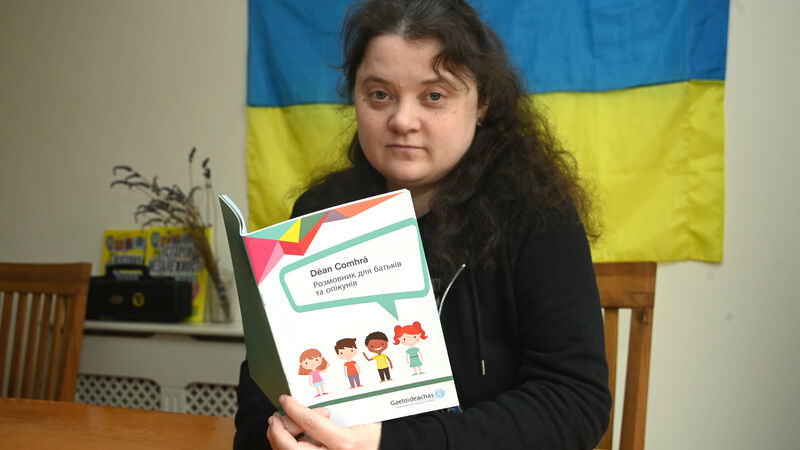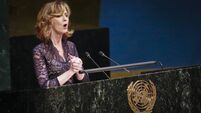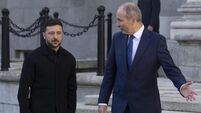Cork based Ukrainian refugee Nadia has embraced Irish culture

Irish speaker and traditional Irish flute player Nadia Dobrianska, from Ukraine, now living in Cork. Picture: Larry Cummins.
“ANY solution is better than living under bombs!”
So said a Ukrainian human rights activist and researcher who moved with her parents to Cork two years ago when her home country was invaded by Russia.
Nadia Dobrianska and her father — her mother died during 2022 — are deeply involved in the Ukrainian community in Cork as she, having learned Irish while she studied in Belfast a few years before the invasion, translates Irish books to Ukrainian and vice versa while her father sings with the Ukrainian Choir in Cork.
Embedded
“Everything is working out well for us, my dad is embedded in the Ukrainian community and is also learning a lot of English and Irish. I’m happy that he’s busy and doing a lot of research about the Ukrainian community in Cork and I’m writing my PhD about the Belfast Pogroms in the 1920s ,” said Nadia.
Ms Dobrianska believes that, despite recent cuts in the provisions for Ukrainian refugees, including limiting the amount of time they can spend in State provided accommodation to three months, Ukrainians will continue to come to Ireland.
“I’m not sure it’s going to deter Ukrainians from coming to Ireland because any solution is better than living under bombs — Ukrainians will keep coming because the war has not stopped.”
Harrowing
Ms Dobrianska has heard harrowing accounts of the suffering of her fellow Ukrainians who are living in parts of her own country that have been occupied by the Russians.
“It depends on which places you’re talking about — there are places like Mariupol that are destroyed, there is no heating or running water, people are living in dire conditions with hardly any medical supplies.
“There are other areas, which were occupied in the early part of the invasion with less resistance, like the occupied left bank of the Kherson region, life there in humanitarian terms is easier, there’s electricity and running water.
“But there is daily terror, Russia is abducting civilian hostages, terrorising them, putting them in secret prisons and trying them for what they’re calling terrorism,” said Ms Dobrianska.
Other practices being carried out by the Russians include the abduction of Ukrainian children, under the guise of taking them to ‘summer camps’ and not returning them, or forcing children to learn Russian rather than their own Ukrainian language.
“We don’t know where the children are and this is extremely disturbing.”
While Nadia is aware that the intense Israeli onslaught in Gaza, which was prompted by the Hamas attack on October 7, has taken over the headlines in the global media, she says the Russian invasion and occupation of parts of Ukraine doesn’t look like it will end any time soon and neither will the Ukrainian resistance end.










 App?
App?


